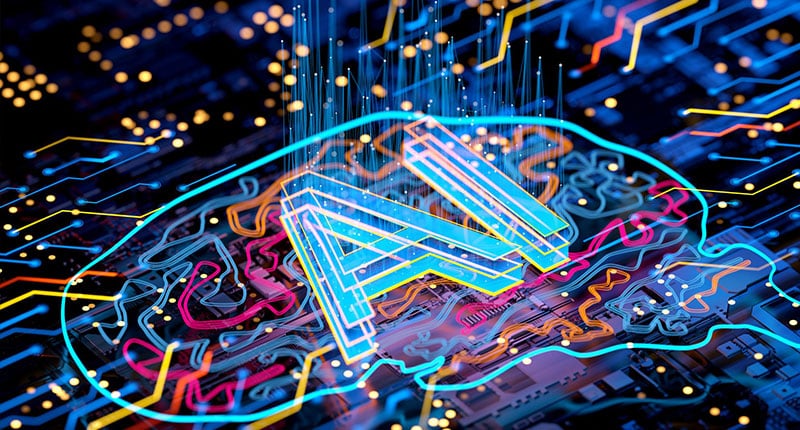Artificial Intelligence, or AI technology, has become a popular topic in recent years. It is a term used to describe machines that can perform tasks that would typically require human intelligence. In this article, we will explore what AI is, how it works, and its potential impact on society.
Artificial Intelligence refers to the ability of machines to perform tasks that would typically require human intelligence, such as learning, problem-solving, and decision-making. AI systems can process large amounts of data, identify patterns, and make predictions based on that data. The development of AI has the potential to revolutionize many industries, including healthcare, finance, and transportation. However, there are also concerns about the ethical implications of AI and its impact on society.
What is Artificial Intelligence?
Artificial Intelligence is a branch of computer science that focuses on creating machines that can perform tasks that would typically require human intelligence. The goal of AI is to create intelligent machines that can learn from experience, adapt to new situations, and perform tasks that are beyond the capabilities of traditional computers.
The History of Artificial Intelligence
The concept of AI has been around for centuries, with early examples dating back to ancient Greece. However, it was not until the 1950s that AI became a formal field of study. The term “Artificial Intelligence” was first coined by John McCarthy in 1956, and since then, there have been many breakthroughs in the field.
Types of Artificial Intelligence
There are four main types of AI, each with its own level of intelligence and complexity.
Reactive Machines
Reactive machines are the simplest form of AI. They can only react to specific inputs, without the ability to form memories or use past experiences to inform future actions.
Limited Memory
Limited memory AI systems can make decisions based on past experiences, but they do not have the ability to learn from new data.
Theory of Mind
Theory of mind AI systems have the ability to understand the emotions, thoughts, and beliefs of other beings.
Self-Aware
Self-aware AI systems are the most advanced form of AI, with the ability to not only understand their environment but also to have a sense of self.
Everything You Need to Know About SpaceX High School Internship
How Does Artificial Intelligence Work?
There are several techniques used in AI, including machine learning, deep learning, natural language processing, and robotics.
Machine Learning
Machine learning is a technique used in AI where algorithms are used to identify patterns in data and learn from those patterns. This allows machines to make predictions based on new data that they have not seen before.
Deep Learning
Deep learning is a subset of machine learning that focuses on creating artificial neural networks. These networks can learn from vast amounts of data and make decisions based on that data.
Robotics
Robotics is the branch of AI that focuses on creating machines that can interact with the physical world. This includes robots that can perform tasks such as welding, assembly, and even surgery.
Applications of Artificial Intelligence
AI has many applications in various industries, including healthcare, finance, transportation, and more. For example, AI can be used in healthcare to help diagnose diseases, create treatment plans, and even assist with surgeries. In finance, AI can be used for fraud detection, risk assessment, and portfolio management. AI can also be used in transportation to improve traffic flow and reduce accidents.
The Benefits of Artificial Intelligence
AI has the potential to revolutionize many industries and improve the quality of life for people around the world. For example, AI can help healthcare professionals diagnose diseases more accurately and quickly, leading to better treatment outcomes. AI can also help companies make better business decisions by analyzing large amounts of data and identifying patterns and trends.
The Risks of Artificial Intelligence
There are also risks associated with AI, including the potential for job displacement as machines become more capable of performing tasks that were previously done by humans. There are also concerns about the ethical implications of AI, such as the potential for bias and discrimination in decision-making.
Ethical Considerations
As AI becomes more advanced, it is important to consider the ethical implications of its use. There are concerns about bias and discrimination in decision-making, as well as the potential for AI to be used for harmful purposes. It is important for developers and policymakers to work together to ensure that AI is used in a way that is safe, ethical, and benefits society as a whole.
Conclusion
Artificial Intelligence has the potential to revolutionize many industries and improve the quality of life for people around the world. However, there are also risks associated with AI, and it is important to consider the ethical implications of its use. As AI continues to evolve, it is important for developers and policymakers to work together to ensure that it is used in a way that is safe, ethical, and benefits society as a whole.










